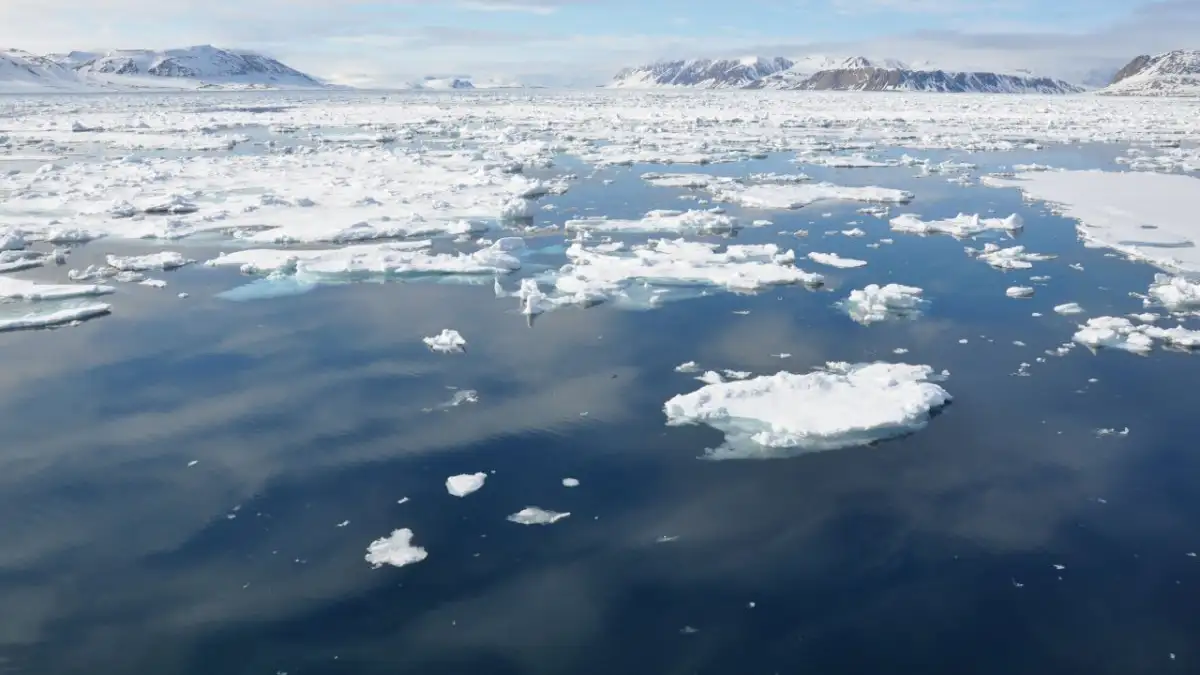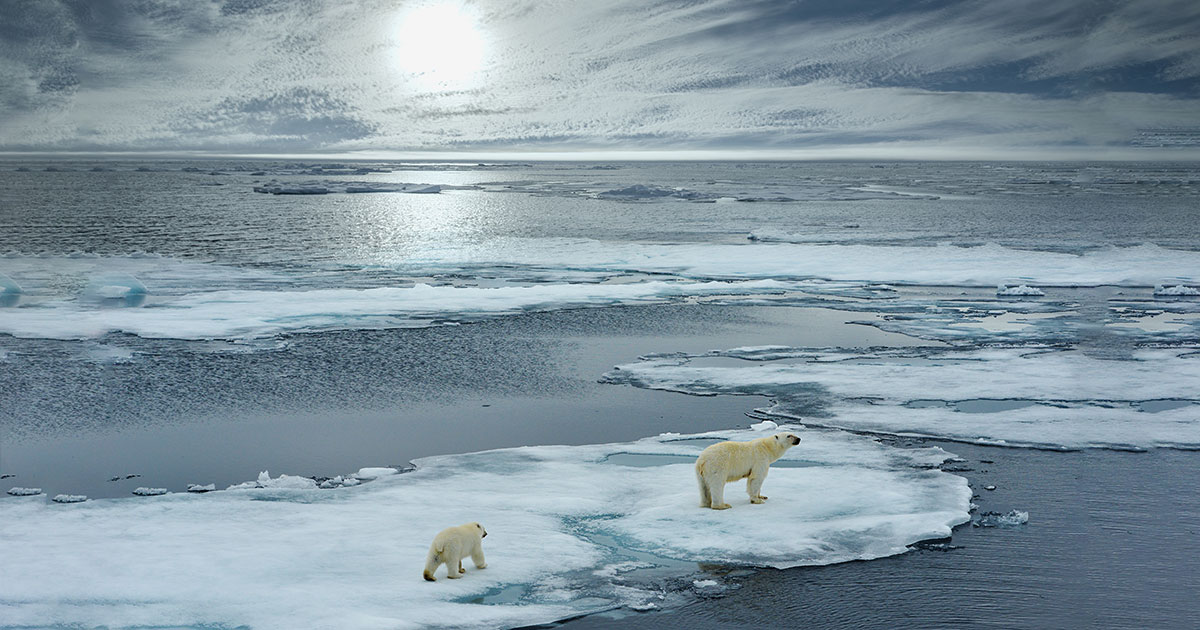
Due to the big smile on its face, a shark is getti...
news-extra-space

 Image: Newscientist[/caption]
This image was taken using a drone by NASA and University of Texas scientists as part of a mission to detect melting Arctic sea ice.
Also Read: Climate change, Antarctica’s emperor penguins are at risk of extinction
The new analysis, which was released in the journal Science, is the first to evaluate Arctic acidification data covering more than two decades, from 1994 to 2020.
The Arctic sea ice in this region may vanish by 2050 or early due to the region's increasingly scorching summers. If there isn't a stable ice cover to halt or reverse the acidification, the ocean's chemistry will alter as a result of this sea-ice retreat every summer.
[caption id="attachment_58286" align="aligncenter" width="1200"]
Image: Newscientist[/caption]
This image was taken using a drone by NASA and University of Texas scientists as part of a mission to detect melting Arctic sea ice.
Also Read: Climate change, Antarctica’s emperor penguins are at risk of extinction
The new analysis, which was released in the journal Science, is the first to evaluate Arctic acidification data covering more than two decades, from 1994 to 2020.
The Arctic sea ice in this region may vanish by 2050 or early due to the region's increasingly scorching summers. If there isn't a stable ice cover to halt or reverse the acidification, the ocean's chemistry will alter as a result of this sea-ice retreat every summer.
[caption id="attachment_58286" align="aligncenter" width="1200"] Image: youmatter.world[/caption]
A recent mission to collect data in the Chukchi Sea and Canada Basin of the Arctic Ocean was taken part in by Zhangxian Ouyang, a postdoctoral researcher at UD.
Also Read: Rich Countries Are Responsible For Climate Change Says Bill Gates
The first author of the article was Di Qi, who works with Chinese research organizations in Xiamen and Qingdao. The study also included contributions from researchers in Seattle, Sweden, Russia, and six additional Chinese research institutions.
During a briefing in Shanghai, Cai and Qi claimed they were both confused when they first looked at the Arctic data together.
The study found that the acidity of the Arctic was increasing three to four times more quickly than that of other ocean waters. Cai found the primary cause is the increasing Arctic sea ice melt during the summer.
Image: youmatter.world[/caption]
A recent mission to collect data in the Chukchi Sea and Canada Basin of the Arctic Ocean was taken part in by Zhangxian Ouyang, a postdoctoral researcher at UD.
Also Read: Rich Countries Are Responsible For Climate Change Says Bill Gates
The first author of the article was Di Qi, who works with Chinese research organizations in Xiamen and Qingdao. The study also included contributions from researchers in Seattle, Sweden, Russia, and six additional Chinese research institutions.
During a briefing in Shanghai, Cai and Qi claimed they were both confused when they first looked at the Arctic data together.
The study found that the acidity of the Arctic was increasing three to four times more quickly than that of other ocean waters. Cai found the primary cause is the increasing Arctic sea ice melt during the summer.
Leave a Reply






